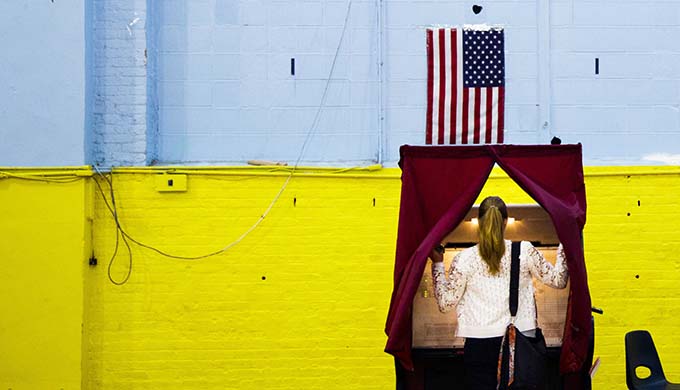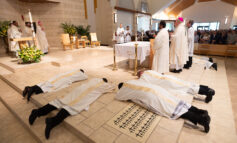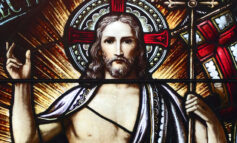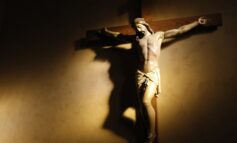By Father John Bayer
Special to The Texas Catholic
The rise and disappearance of a “Catholic” vote in America is an interesting story. To summarize briefly what I have learned, Catholics emerged in the late 19th and early 20th century as a voting bloc united in defense of the poor and immigrant classes and against certain social changes: basically in support of the old Democratic party. This unity disappeared in the second half of the 20th century. According to the statistics, today a Catholic is as likely as any other American to vote for a candidate.
In other words, the numbers suggest that what Catholics believe about the dignity and destiny of all things has no coherent consequence for the politics of one of the most powerful nations in the world. So, while candidates compete for the favor of almost every group imaginable, there is no effort to understand or win the favor of Catholics, who represent around a fifth of the electorate (70 million). On the one hand, this is only natural since Catholic faith itself encourages us to engage others on the common ground of reason. We want politicians to win us over by rational argument rather than by pandering to us. On the other hand, there is something alarming about the disappearance of a Catholic vote, at least in the measure that it reflects either a lack of coherent principles, a submission to partisan politics or a “selective ear” for the Gospel and teaching of the Church.
The current election cycle offers an opportunity to restore some coherence to the Catholic vote as a force for the common good. Given the unpopularity of both candidates and parties, the call for an independent voice capable of elevating the discourse and uniting Americans is as loud as it has ever been in my lifetime. Now, Catholics are the custodians of one of the oldest and most thoughtful traditions in the world, and the list of major philosophers, scientists and statesmen of the West includes innumerable Catholics. And, since we know that our “citizenship is in heaven” (Phil 3:20), we ought to be free from partisan polemics, capable of setting aside ideology and dedicating ourselves to the common good.
We can do ourselves and our country so much good by diving deeply into our identity. The deeper we go, the more we will see that “the reason for our faith” (cf. 1 Pt 3:15) is credible and attractive. The rich social teaching of the church is addressed to all men and women of good will; it is, therefore, capable of guiding a pluralistic nation toward the common good by its appeal to reason and our shared humanity.
So, let us unite as Catholics and offer America a coherent and attractive witness. Our country needs us today more than ever, and our civic duty is about so much more than casting a ballot. We owe our country thought and dialogue. So, let us dive into the nuanced social teaching of the church. Let us be inspired by remarkable Catholic women like St. Elizabeth Ann Seton, St. Katharine Drexel, Dorothy Day or Eunice Kennedy Shriver. Let us broaden our intellectual horizons with the social encyclicals of every pope from Leo XIII to Francis. If we need a summary resource to prepare for the election, we can look up the non-partisan document produced by our bishops, Forming Consciences for Faithful Citizenship. Even though this document is filled with implications for the improvement of both parties, the bishops seem to have made every effort to avoid giving an endorsement – it therefore represents an independent contribution to our national conversation that does not descend into partisanship. Finally, let us talk about what we learn and carry it through into concrete action!
The restoration of coherence to the Catholic vote can bring peace to our church and a thoughtful, independent voice to our country. I believe it is our religious and civic duty. For, as the American bishops write, “As citizens, we should be guided more by our moral convictions than by our attachment to a political party or interest group. When necessary, our participation should help transform the party to which we belong; we should not let the party transform us” (Forming Consciences for Faithful Citizenship, 14).
Father John Bayer, O.Cist., is a theologian and monk at the Cistercian Abbey of Our Lady of Dallas in Irving. His column appears occasionally in The Texas Catholic.




